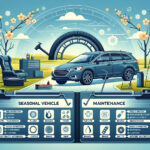
While it’s obvious that accident recovery involves partnering with your attorney and medical providers, many overlook or deny the emotional trauma of an accident. We offer some tips here for preventing trauma, should you be involved in an accident, and below are some coping tips if you are still struggling with issues after an accident.
Psychologist Batya Ludman recently wrote about the importance of coping in the aftermath of a crash. She notes that if the psychological aspect is neglected, the results may show up in a number of ways.
Those who return to driving may be anxious or hyper-vigilant, with panic attacks, sleep disruption, pain, nightmares, intrusive thoughts, headaches, anger outbursts, depression and more.
In the case of less serious accidents, these symptoms of PTSD may be prevented or alleviated by assuring accident victims that they are or will be fine, which helps them to focus on the positive and begin the emotional healing process, says Ludman. She also suggests using relaxation techniques to get past the initial shock and panic.
Once you are in a position to get back on the road, remember that there are things you can do to prevent accidents. Here are some suggestions based on Ludman’s advice, and our years of experience:
- Don’t drive if you are tired or stressed. We would add that you should not drive distracted, either. If you know the phone will bother you, put it in silent mode, then go.
- If you are stressed, use time at stops to focus on breathing in a relaxing way, and clear your head.
- Be a role model for your children and make it a rule that the car doesn’t move until everyone is buckled. Be a good role model for your teen drivers, and actively teach them safe driving habits.
- Road safety includes bicycles, and kids must always use helmets when cycling. In Tennessee, it’s the law.
- Avoid the big no-nos: road rage and drinking and driving.
- If you think you need help in avoiding accidents in the future, take a defensive driving course.
We wish you a safe and happy summer — and if you need us, we are always here to help.
Jay Stillman
Personal Injury Attorney
Stillman and Friedland
615-244-2111






